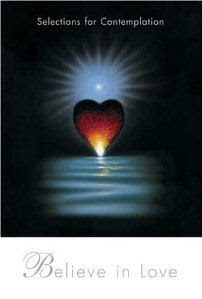 I have been practicing Siddha Yoga Meditation for around thirteen years. It’s a spiritual path that encourages people to see God in themselves and in each other. People practice Siddha Yoga Meditation all over the world, coming together at centers within their communities to chant and meditate.
I have been practicing Siddha Yoga Meditation for around thirteen years. It’s a spiritual path that encourages people to see God in themselves and in each other. People practice Siddha Yoga Meditation all over the world, coming together at centers within their communities to chant and meditate.
Years ago, I volunteered my services to support the center in Chicago. Often, I offered to act as MC for programs. I recently decided to re-commit to support a team that put on programs once a month. After a very long hiatus, a couple weeks ago, I found myself again in the role of MC; planning program elements and writing remarks that would help make newcomers feel welcome and old-timers feel at home in their hearts.
I looked at what was happening in my life and perused my library of books and video tapes of talks given by Swami Chidvilasananda, the current master teacher of the path. In 2000, she delivered a New Year’s message as a point of focus for contemplation for the year, “Believe in Love.” I found a VHS copy of this talk in my collection. After the loss of my mother, the recent end of a dating relationship, and my renewed commitment to offer seva, selfless service, at the local center, I had been thinking a lot about love. I thought watching this talk would be a great starting point for preparing for my role as MC.
I had not listened to the talk for a long time, not for years. But I had a feeling there was something in it I needed to hear now. I also wanted to listen to the talk with the specific intention of picking out a short segment to share at the program. I found myself bringing new ears to an old message.
A lot of things in my life have changed since 2000; eleven years ago. Previously unfamiliar sensations of stiffness in my joints have become familiar. Weight around my waist has become harder than ever to lose. The proportion of “salt” to “pepper” in my hair has increased. But during this time, I also learned to speak up for myself more and forgive myself more. I learned how to make changes and then make more changes because I didn’t like where my initial decisions were leading me. In other words, I gave myself permission to re-choose. I formed new relationships, tried new things, and yes, found myself more willing than ever to let go of petty grievances.
In her talk, Gurumayi quoted an ancient Indian aphorism. I watched her face become illuminated with awareness and humor as she delivered the saying. She simultaneously embodied both an air of seriousness and profound lightness. “The nature of love,” she said, then paused for effect … “Cannot be defined.” Then, as if she was in on the sage’s joke, added. “Good start, eh?”
In her remarks, she emphasized that while impossible to define love, it would be foolish not to try to understand it. Nowhere else in the galaxy, as no other form of life, could love be experienced as we can experience it as human beings here on earth.
I certainly have a different understanding of love at fifty-four than I did at forty-four, or at twenty-four, or at four. Love is not a bargaining chip or type of validation, a code for approval. It’s not a fairy-tale or precious gift that everyone else seems to get. Like running around, searching for your eyeglasses while they’re pushed up against your forehead, love is always with us but sometimes we have to remember it. It cannot be defined, and is all the more important because it has to be known and embraced in a different way. And laughing about its paradoxical nature seems to be the only sensible and self-compassionate response possible.
Listening to an old message with new ears is no small thing.


Leave a comment